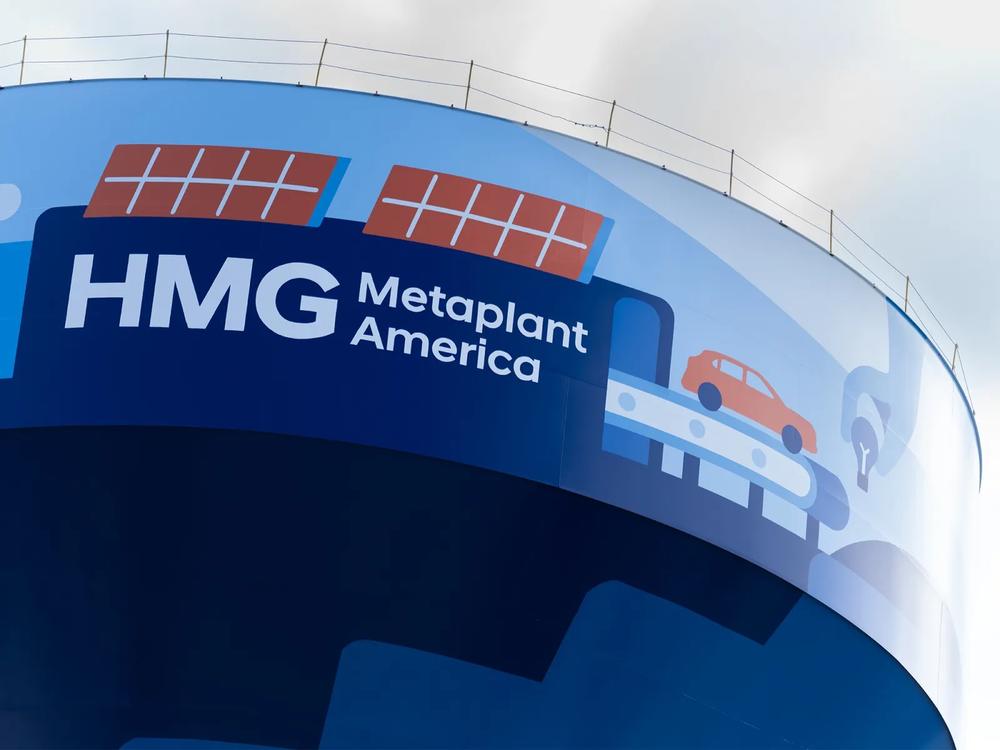
Section Branding
Header Content
Georgia issues water permits for Hyundai plant
Primary Content

Mary Landers, The Current
The Georgia Environmental Protection Division on Monday issued final water withdrawal permits to Bulloch and Bryan counties to withdraw a total of 6.65 million gallons of water a day from four wells in the Floridan aquifer in Bulloch County.
Four million gallons of water a day is destined for the Hyundai manufacturing complex site in Ellabell, about 5 miles east of the planned wells. The remainder will provide water to business, residential and warehouse developments associated with the Hyundai site.
The permits were issued less than a week after the area’s first Hyundai electric vehicle rolled off the assembly line in Ellabell on Thursday. Water use associated with construction at the site has been covered by Bryan County’s existing permitted groundwater use, the EPD noted in its response to comments, a 38-page document posted along with the final permits.
The Metaplant campus has enough water from a well on site to cover its needs in its initial launch phase, about 335,000 gallons a day, Trip Tollison of the the Savannah Harbor-Interstate 16 Corridor Joint Development Authority told The Current earlier this year. But by the second quarter of 2025, Georgia has promised to deliver almost 6.5 times as much: 2.15 million gallons a day. Finalizing the permits is the latest step in keeping that promise to Hyundai.
“We thank the Georgia EPD for its rigorous analysis of the impact this development will have on the area’s water supply,” officials at the Savannah Harbor-Interstate 16 Corridor Joint Development Authority said in a prepared statement. “After thoroughly reviewing the science and considering all input from the community, the Georgia EPD concluded that the four wells can meet the interim water needs.”
The water needs are considered “interim” because the counties have 25 years to find another water source for Hyundai, most likely surface water from the Savannah River. The use of surface water was rejected for the plant’s launch because it would have taken 10 years longer to implement and cost an estimated $362 million more than Bulloch well water, Tollison previously told The Current.
Pushback from activists, citizens
On Tuesday, the Ogeechee Riverkeeper reiterated its stance that aquifer water should be prioritized for drinking water rather than industrial use.
“EPD and the State of Georgia cannot continue to allow industry to monopolize our limited, pristine groundwater,” legal director Ben Kirsch said in a prepared statement. “At the same time, area residents are forced to increase their reliance on treated surface water for drinking, and agricultural producers face water supply uncertainties and increased production costs. The 25 years EPD is giving to find an alternative water supply is inadequate and insufficient.”
The withdrawal permits were issued as the U.S. Army Corps of Engineers continues to re-evaluate the permit it issued for the Hyundai site before building began in January, 2023. The Ogeechee Riverkeeper prompted that re-evaluation in August, saying the Corps didn’t properly consider water supply in its evaluation.
“The U.S. Army Corps of Engineers is currently reviewing the information provided by the Joint Development Authority on Sept. 20, 2024, and will not know the impact (of the EPD’s issuance of water withdrawal permits) until the review is complete,” Corps spokeswoman Cheri Pritchard wrote in an email.
The wells have been the subject of fierce and ongoing protests, especially in Bulloch County where farmers with agricultural wells and residents with domestic wells fear that withdrawing millions of gallons for Hyundai’s use will make it harder for them to pump water.
This concern is addressed with a special condition in the permits that requires Bulloch and Bryan counties to create and manage a fund to address significant impacts to existing Floridan aquifer wells within about five miles of the new wells. Nearby well owners were critical of this solution when it was first proposed in February, fearful the funding would be insufficient or too slow to compensate them. EPD’s modeling of the expected impacts suggests that at most five agricultural wells will be affected and that the drawdown will require only a lowering of their pumps. The regulators did not significantly change the fund requirement since it was first proposed.
“We appreciate that any time new wells are proposed, nearby residents will be concerned about the impact on their homes and properties, and we hope they will be reassured by the depth of the analysis the Georgia EPD has provided,” officials at the Savannah Harbor-Interstate 16 Corridor Joint Development Authority said in a prepared statement. “It validates what we have seen since we started analyzing this site 10 years ago: there is enough water to support industry and agriculture while protecting and preserving the environment.”
Bulloch residents are currently gathering signatures with the aim of forcing a referendum on its county’s water decision.
While Hyundai has indicated it requires 4 million gallons a day to run its factory and the associated battery plant and other parts manufacturers at the nearly 3,000-acre megasite, it has not provided a breakdown of how that water will be used. The permits include water planning requirements including establishing a water loss control program and demonstrating progress toward increased water efficiency. But these requirements are aimed at the permit holders, Bryan and Bulloch counties. It’s unclear how the requirements apply to Hyundai, which will be buying water from the counties.
Why Bulloch?
Development authorities looked to Bulloch County for water because the state restricts new groundwater withdrawals in Bryan County and is actively reducing groundwater withdrawals in Chatham County as key measures to protect the Floridan aquifer where it has previously been pumped extensively. Pumping associated with the water-intense paper industry in the Savannah area in the last century led to salt water intrusion in wells in Hilton Head decades ago. Georgia responded with pumping restrictions in part to avoid a “water war” with South Carolina.
“These withdrawals will continue to strain our shared Floridan Aquifer, hindering the recovery of the cone of depression, while drinking water suppliers in our region have been required to reduce their withdrawals,” the Ogeechee Riverkeeper’s Ben Kirsch said in a statement.
This story comes to GPB through a reporting partnership with The Current.


